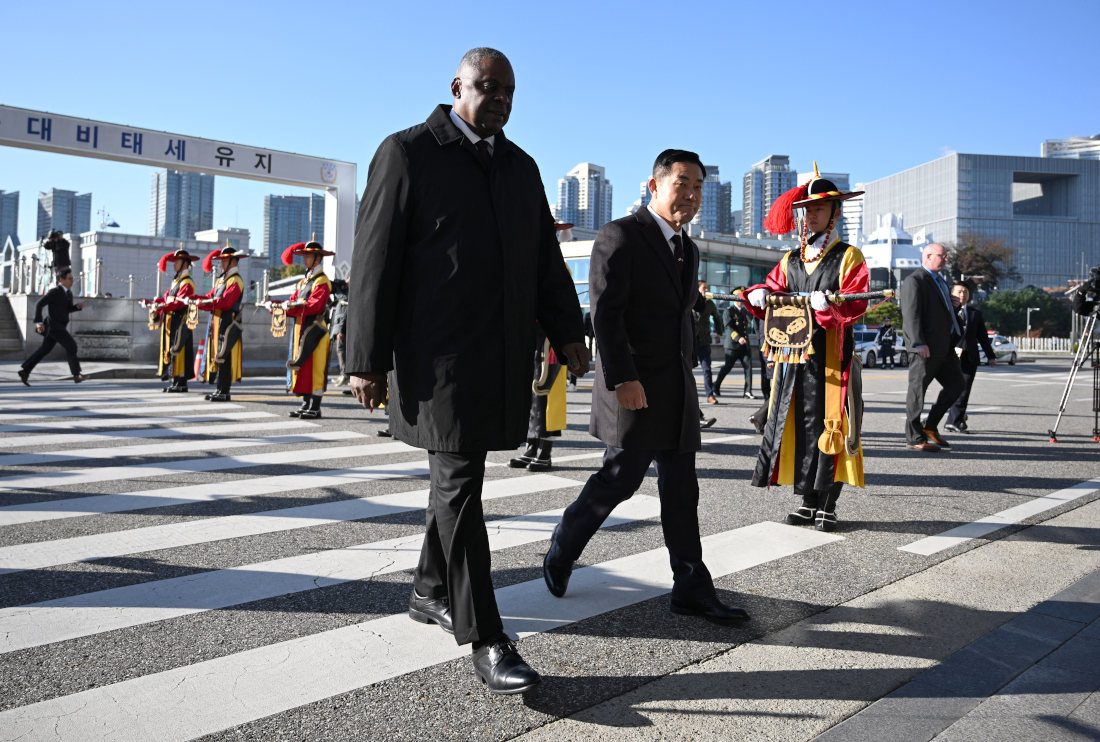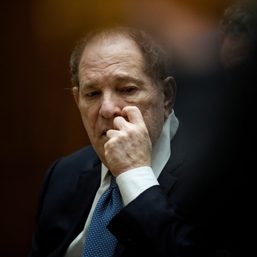SUMMARY
This is AI generated summarization, which may have errors. For context, always refer to the full article.

SEOUL, South Korea – South Korea and the United States during talks on Monday, November 13, revised a bilateral security agreement aimed at deterring North Korea’s advancing nuclear and missile threats, South Korea’s defense ministry said.
The Tailored Deterrence Strategy (TDS) is aimed at countering North Korea’s nuclear weapons and other arms, according to an announcement on the agreement by the two countries 10 years ago.
South Korea’s Defense Minister Shin Won-sik and his US counterpart, Lloyd Austin, signed the updated agreement at the security talks in Seoul, the ministry said.
The revision was considered necessary because the existing strategy did not adequately address rapid advancements in North Korea’s missile and nuclear programs, it said.
The Defense Ministry did not immediately specify what had been updated.
Earlier, South Korea’s defense ministry said Shin and Austin would discuss jointly countering threats by North Korea, including through executing an “extended deterrence” strategy.
The strategy, which holds that the United States will use strategic military assets, including nuclear forces, to defend its allies, has taken on a greater significance as North Korea pushes ahead with its ballistic missile and nuclear programs.
Shin said the two countries have been upgrading security cooperation, including the launch of the Nuclear Consultative Group (NCG) and bolstering the execution of the extended deterrence strategy, Yonhap news reported.
The nuclear discussions are aimed at better coordinating an allied nuclear response during a war with North Korea.
Shin on Monday cited expanded military drills with the United States in recent months as an indication of upgraded strategic cooperation, including the involvement of US strategic bombers and a nuclear ballistic missile submarine, Yonhap reported.
Recent changes in North Korean and Chinese capabilities and intentions are likely to “dramatically” increase the risk that US and South Korean deterrence could fail within the next decade, and the allies must undertake major steps to strengthen deterrence, the Atlantic Council think tank said in a study last week.
That study, which convened more than 100 experts, found that although an all-out nuclear attack is the least likely scenario, Pyongyang could feel emboldened to escalate with more limited military actions, including possible nuclear strikes.
The Israel-Hamas war and Russia’s invasion of Ukraine also cast a shadow over Monday’s meeting amid Pyongyang’s growing military cooperation with Moscow and questions about the North’s support for Hamas militants.
On Sunday, South Korean President Yoon Suk Yeol said at a dinner that the allies must stand ready for any provocations by North Korea, including a “Hamas-style surprise attack.”
At the reception, Austin reaffirmed that the US commitment to defending South Korea involved the full range of American military capabilities, Yoon’s office said.
The defense meetings come as North Korea is believed to be preparing to launch a military reconnaissance satellite after two failures.
Pyongyang is also accused of shipping munitions to Russia for use in the war with Ukraine in return for technical support to help its weapons programs.
Russian President Vladimir Putin said at a recent summit with North Korean leader Kim Jong Un that Russia would help North Korea build satellites, but did not elaborate.
The defense chiefs from South Korea, Japan and the United States agreed on Sunday to start a real-time data sharing scheme on North Korean missiles in December, South Korea’s defense ministry said. – Rappler.com
Add a comment
How does this make you feel?










There are no comments yet. Add your comment to start the conversation.